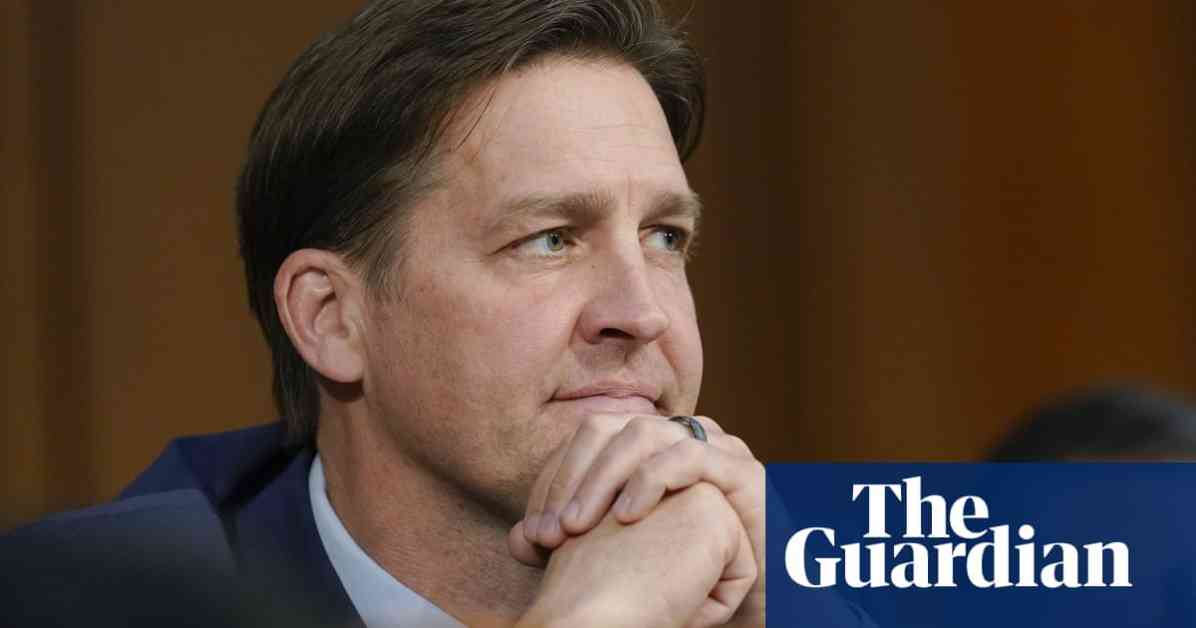Investigation of Former Senator and University President’s Expenditures Sparks State Inquiry
An investigation has been launched into the spending habits of former University of Florida president Ben Sasse, following revelations that he awarded secretive consulting contracts and high-paying jobs to former members of his US Senate staff and Republican allies. The increased spending under Sasse’s leadership has raised concerns about the allocation of state funds and the transparency of the university’s financial decisions.
Sasse, a former Nebraska senator, took on the role of president at the University of Florida in February 2023. However, his tenure was marred by controversy as reports surfaced of questionable hiring practices and excessive expenditures during his first year in office. According to the Independent Florida Alligator, Sasse’s office spent $17.3 million in his first year, compared to the $5.6 million spent by his predecessor Kent Fuchs in his final year.
Among the most concerning revelations were the hiring of six former staffers and two ex-Republican officials by Sasse, all of whom received salaries that exceeded market rates for comparable positions. What’s more, most of these individuals did not even relocate to Gainesville but instead worked remotely from hundreds of miles away. This raised questions about the necessity and effectiveness of these appointments, as well as the impact on the university’s budget and operations.
State Inquiry and Calls for Investigation
The excessive spending and questionable hiring practices under Sasse’s leadership have prompted calls for a state inquiry into the matter. Both Governor Ron DeSantis and Florida’s chief financial officer have expressed concerns about the stewardship of state funds and the need for transparency in the university’s financial decisions.
Governor DeSantis issued a statement emphasizing the importance of ensuring that tuition and tax dollars are being properly used. He has been in discussions with university leadership and the governing board to investigate the allegations raised by the Independent Florida Alligator’s report. Similarly, chief financial officer Jimmy Patronis called for a thorough investigation to determine whether the expenditures under Sasse’s leadership were appropriate and in line with state regulations.
The scrutiny surrounding Sasse’s expenditures has cast a shadow over his tenure as university president, which ended abruptly on July 31 due to his wife’s health issues. Despite his resignation, the questions raised about his financial decisions and hiring practices have sparked a broader conversation about accountability and oversight within the state university system.
Defending the Expenditures
In response to the allegations of excessive spending and questionable hiring practices, Ben Sasse defended his actions in a statement posted on social media. He argued that the hirings and consulting contracts were necessary to support the university’s expansion efforts, including the establishment of new satellite campuses and K-12 charter schools across the state.
Sasse maintained that all expenditures were approved through the normal budget process and were essential for advancing the university’s goals in areas such as artificial intelligence, medicine, science, and technology. He justified the high salaries paid to former staffers and Republican allies as a means of securing their services amid competing opportunities and offers in the job market.
Despite facing criticism for his handling of university funds, Sasse expressed confidence that the expenditures under discussion were proper and appropriate. He welcomed an audit to examine the financial decisions made during his tenure and provide clarity on the allocation of state funds within the university.
Controversial Appointments and Consulting Contracts
Among the most contentious appointments made by Ben Sasse during his time as University of Florida president were those of his former Senate staffers and Republican allies. These individuals were given high-paying positions within the university, despite residing outside of Florida and working remotely.
Raymond Sass, Sasse’s former Senate chief of staff, was hired as the university’s vice-president for innovation and partnerships, a newly created role with a salary of $396,000 annually. Similarly, James Wegmann, Sasse’s former Senate communications director, became UF’s vice-president of communications, earning $432,000 annually. Both individuals continued to reside in Washington DC, raising questions about the necessity of their appointments and the impact on the university’s budget.
In addition to his former staffers, Sasse also hired individuals with strong Republican party ties, including the former Tennessee commissioner of education Penny Schwinn and former scheduler for South Carolina senator Lindsey Graham, Alice James Burns. These appointments further fueled concerns about cronyism and political favoritism in the university’s hiring practices.
Furthermore, Sasse awarded a $4.7 million contract to McKinsey & Company, a prominent management consulting firm where he once worked as an adviser. The nature of the firm’s work for the university remains undisclosed, raising questions about the transparency and accountability of the consulting contracts awarded by Sasse during his tenure.
In total, Sasse’s expenditures on consulting contracts and high salaries for former staffers and Republican allies amounted to approximately $22 million, a significant increase compared to his predecessor’s spending. The lack of clarity surrounding these expenditures has prompted calls for a thorough investigation into the financial decisions made under Sasse’s leadership.
In conclusion, the investigation into Ben Sasse’s expenditures as University of Florida president highlights the importance of accountability and transparency in the allocation of state funds within the higher education system. The scrutiny surrounding Sasse’s hiring practices and consulting contracts underscores the need for oversight and regulation to ensure that taxpayer dollars are being used responsibly and effectively. As the state inquiry unfolds, it will be crucial to assess the impact of these expenditures on the university’s operations and financial stability, and to hold accountable those responsible for any mismanagement or misuse of public funds.

